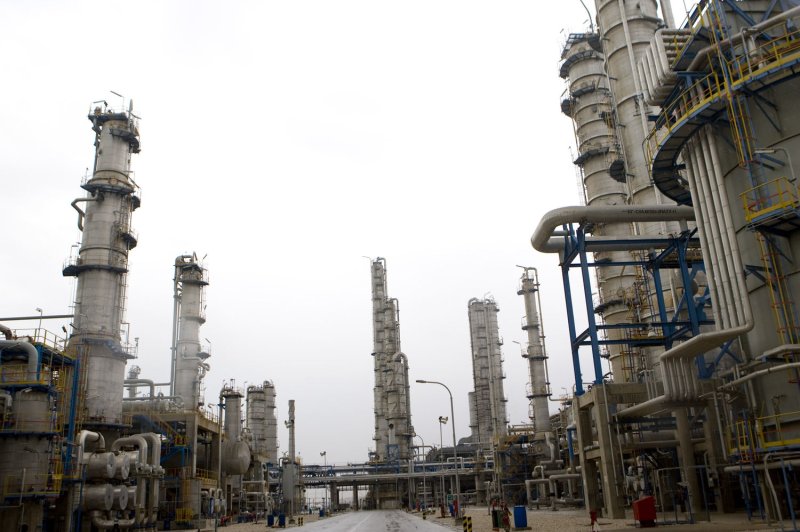Iran's oil minister said the capacity to produce oil could be improved with the help of foreign companies. File photo by Maryam Rahmanian/UPI |
License Photo
Jan. 29 (UPI) -- Iran could increase total oil production capacity by more than 1 million barrels per day if talks with foreign partners pan out, the oil minister said.
Secondary sources reporting to economists at the Organization of Petroleum Exporting Countries said Iran produced 3.83 million barrels of oil per day on average in December, an increase of around 13,000 bpd from November, but more or less on par with its average since the third quarter of 2017.
Iranian Oil Minister Bijan Zangeneh said during the weekend that production capacity could increase by at least 1.7 million bpd if terms can be reached with unspecified foreign partners.
"[This] is a difficult job to do as only a section of the task is on us and the rest depends on political conditions both inside and outside of the country," he was quoted as saying by SHANA, the ministry's new website.
OPEC economists said the value of some of the oil grades included in the OPEC basket of crude have increased in value, including the Iranian grade, as demand improves globally and the market tightens up in response to the OPEC-led effort to balance the market with coordinated production cuts.
Iran is excluded from the arrangement so it can work to reclaim a market share lost to Western sanctions before the implementation of the U.N.-brokered nuclear deal in January 2016. OPEC reported Iranian crude oil production averaged 3.5 million bpd that year.
Iranian energy companies were among the hundreds attending the annual Offshore Energy Exhibition & Conference in Amsterdam in October. Companies from Tehran said they were set up to showcase the opportunities for international investors wanting to participate in Iran's offshore industries.
For Iran, the conference offered an opportunity to gain access to new knowledge and technology needed to overhaul an energy sector burdened by sanctions. For European majors, they have the supply chain to do the job.
From a production standpoint, Joe McMonigle, a senior energy analyst at Hedgeye Risk Management, told UPI at the time that Iran has probably peaked in terms of what it can do by itself.
In order for Iran to produce more, it may need support from Western investors, something McMongile said would be difficult given U.S. President Donald Trump's stance on the nuclear deal.
Trump opted on Jan. 12 to align with the principles of the Joint Comprehensive Plan of Action -- the U.N.-backed Iranian nuclear deal -- and issue a waiver on oil-related sanctions on Iran, but said it could be the last time.















